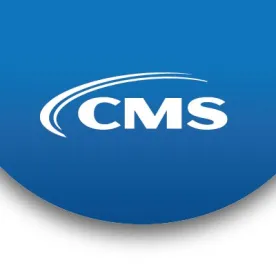On August 25, 2020, the Centers for Medicare & Medicaid Services (CMS) issued an interim final rule with comment period, which establishes new COVID-19 testing and reporting requirements for a variety of health care providers, including nursing facilities, clinical laboratories, and hospitals. These provisions take immediate effect and will continue through the duration of the COVID-19 public health emergency.
New COVID-19 Testing and Reporting Requirements
Long term care facilities such as nursing homes are required to conduct COVID-19 testing of their residents and staff, including individuals providing services under arrangement and volunteers. The frequency of such testing will be clarified in future guidance from the Secretary of the Department of Health and Human Services (HHS), however, the interim rule references the already published Center for Disease Control (CDC) guidance to nursing homes for testing, which establishes different testing intervals based on medical conditions. In addition, long term care facilities now must also report facility data relating to COVID-19 and infection control to the CDC National Health Safety Network at least weekly. Such data includes, among other things, suspected and confirmed COVID-19 infections among residents and staff, including residents previously treated for COVID-19, total COVID-19 related deaths among residents and staff, as well as personal protective equipment (PPE) and hand hygiene supplies in the facility. The interim final rule represents the latest in a series of federal government initiatives to increase COVID-19 testing in nursing facilities. Previously, CMS provided reopening recommendations to nursing facilities which included initial and routine testing recommendations. In July, the federal government announced the release of an additional $5 billion allocated to nursing homes from the Provider Relief Fund under the Coronavirus Aid, Relief and Economic Security (CARES) Act.
Hospitals, which heretofore were voluntarily providing COVID-19 information to CMS, are now required to do so daily in order to maintain participation in the Medicare and Medicaid programs. As with the long term care facility reporting, the data elements required to be reported will be identified by the Secretary of HHS in future guidance, but the interim final rule indicates that such elements will include: bed occupancy, PPE supplies, and a count of patients currently hospitalized who have laboratory-confirmed COVID-19. Such mandatory universal reporting will be done electronically using a standardized format.
Under the CARES Act, CLIA certified clinical laboratories that perform COVID-19 testing must report those results to HHS. In June, HHS issued guidance to laboratories for such reporting The interim final rule memorializes and enforces the guidance by mandating daily reporting in a standardized format. Once again, the data elements required to be reported will be identified by the Secretary of HHS in future guidance. Laboratories that fail to meet the reporting requirements face the possibility of civil money penalties in the amount of $1,000 a day for the first day and $500 for each subsequent day.
CMS also has revised its policy which allowed for broad COVID-19 testing for a single Medicare beneficiary without a physician or other practitioner order. Now, CMS has ruled that one single COVID-19 diagnostic test and one of each other related tests (which are listed in the May 8th CMS interim final rule) without a treating physician or other practitioner order is reasonable and necessary. In addition, CMS is establishing a policy whereby the orders of pharmacists and other practitioners who are allowed to order laboratory tests in accordance with state scope of practice and other pertinent laws can fulfill the requirements relating to orders for covered COVID-19 tests for Medicare patients. The reasons behind such policy changes are to eliminate unnecessary testing while ensuring Medicare beneficiaries have expanded access to COVID-19 testing.




 />i
/>i
